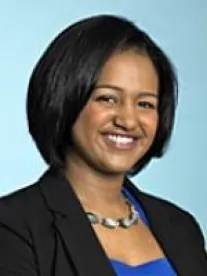Nearly one in three cell phone owners have used their phone to look for health information. Approximately 19% of smartphone owners have downloaded a mobile medical application (Medical App). These and many more statistics prompted the House Committee on Small Business’s Subcommittee on Health and Technology (Subcommittee) to hold a Mobile Medical App Entrepreneurs: Changing the Face of Health Care hearing on June 27, 2013.
In his opening statement, Representative Chris Collins (R-NY), the Subcommittee Chair, noted that “an estimated 500 million smartphones will be using a medical app by 2015, and 78% of top app developers are small businesses.” The Subcommittee expressed concerns about whether the broad range of tax, marketing, and device regulations pose burdensome barriers to small businesses seeking to bring their Medical Apps to the public. During the hearing, the witnesses made responsive statements to the Subcommittee’s queries and described how their own Medical Apps work. The Medical Apps address issues such as preventing unnecessary readmissions through discharge planning, chronic disease management, and electronic health record maintenance.
The CEO of Airstrip testified that “the biggest challenges in the advancement of Health Information Technology (HIT) are security, limited access to diagnostic quality solutions [cleared or approved by the Food and Drug Administration (FDA)] . . . and medical device interoperability.” Each of these issues touches on the expertise of multiple federal agencies, including the FDA, Federal Communications Commission (FCC), the Federal Trade Commission (FTC), and the Office of the National Coordinator for Health Information Technology (ONC). No one agency has exclusive authority over Medical Apps generally.
Federal agencies are making some efforts to address the dearth of Medical App regulations. For instance, in July 2011, the FDA solicited comments on its Draft Guidance for Industry and Food and Drug Administration Staff – Mobile Medical Applications, which proposes its approach to determining whether a mobile medical application should be regulated as a “device.” Additionally, the FDA, ONC, and FCC have a specific mandate under Section 618(a) of the Food and Drug Administration Safety and Innovation Act (FDASIA) to coordinate their HIT regulatory efforts, as we described in a previous post. Medical App developers have taken varied positions for and against these agency efforts. But, all are calling for the agencies to release final regulations soon so as to provide Medical App developers with certainty on how to proceed and to ensure that improvements in health care delivery and management can keep pace with technological advancements.
For more, see this video to hear testimony from the following witnesses and their statements below.
Mr. Alan Portela, Chief Executive Officer, Airstrip, San Antonio, TX
Mr. Keith Brophy, Chief Executive Officer, Ideomed, Grand Rapids, MI
Dr. Christopher Burrow, EVP Medical Affairs, Humetrix, Del Mar, CA
Ms. Sabrina Casucci, Ph.D Candidate, Industrial and Systems Engineering, University at Buffalo, Amherst, NY



 />i
/>i

